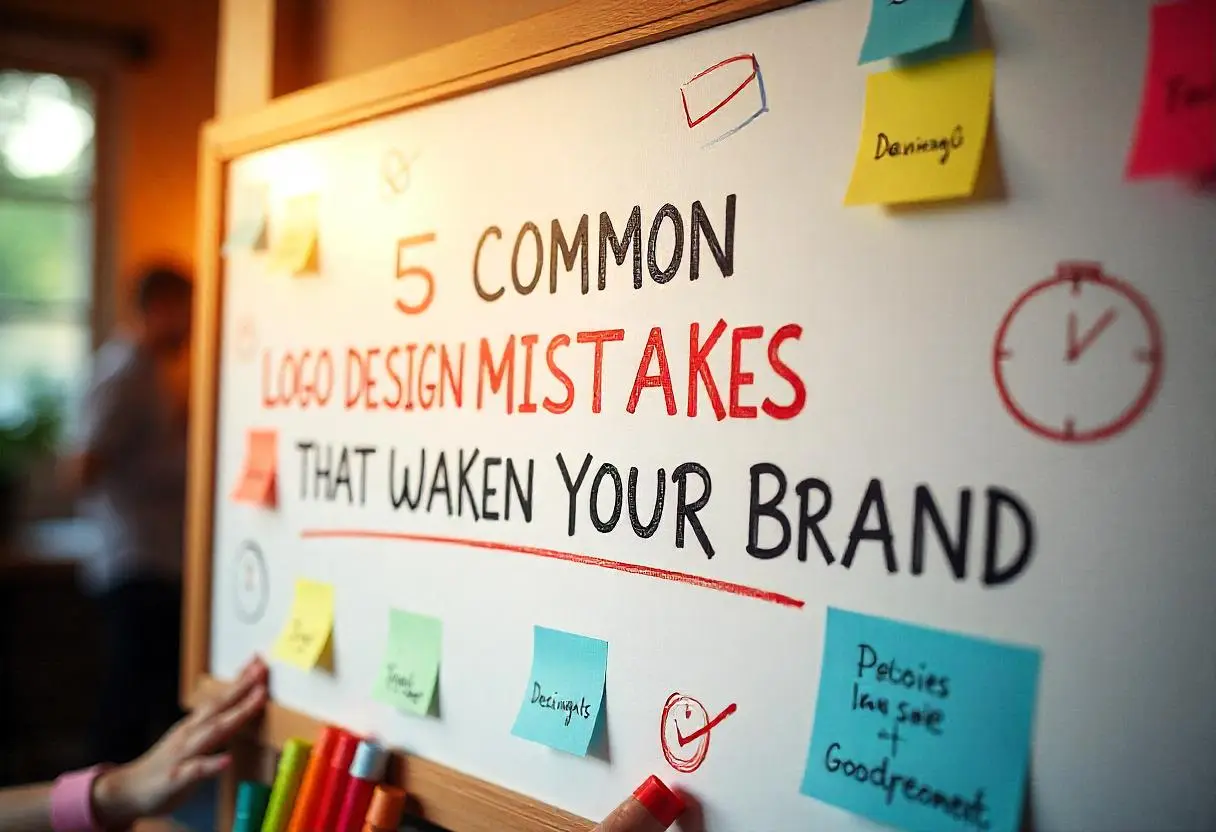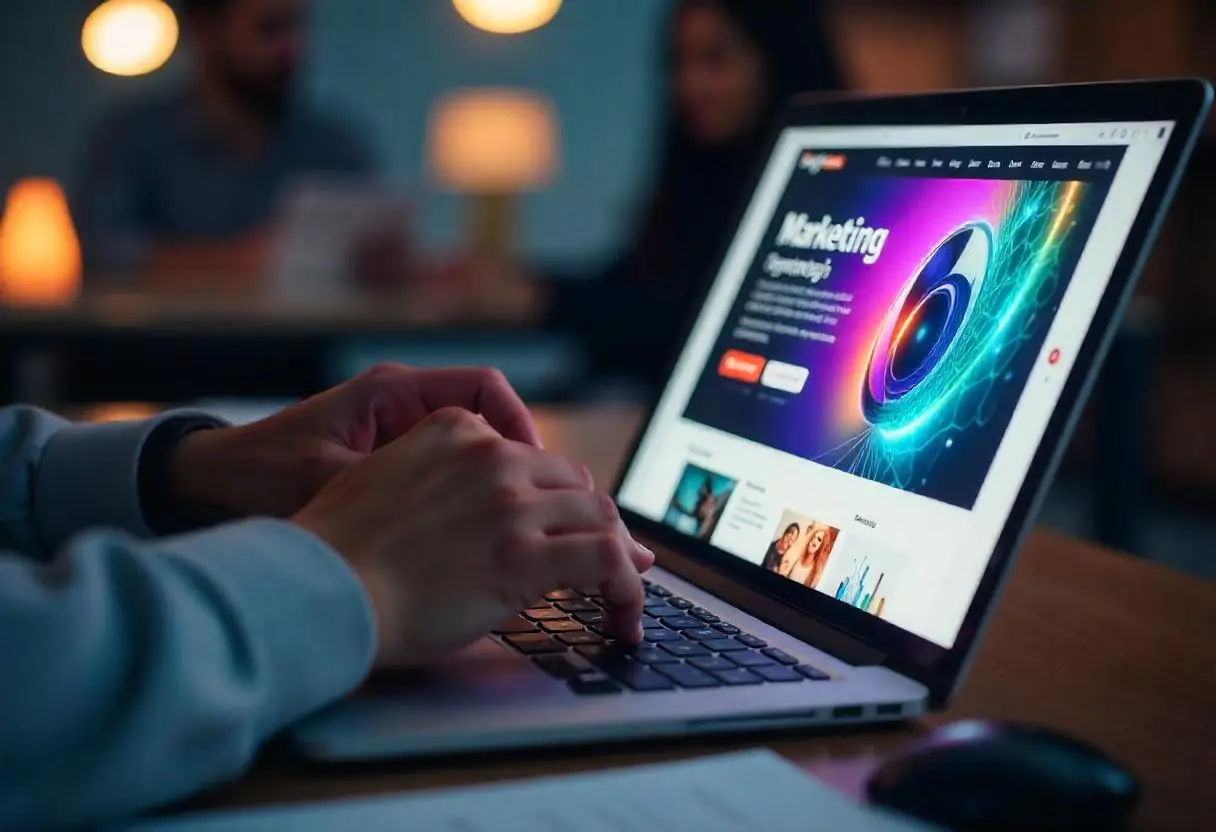In today’s digital world, brand identity has become one of the most critical factors for business success. With the growing use of the internet and the constant presence of people online, every business needs a strong and unique identity to attract audience attention and build trust. Branding is no longer just a marketing tool; it’s a necessity that can determine the success or failure of your business in the competitive online space.
Why Brand Identity Matters in the Digital Age
Trust is a cornerstone of success for online businesses. Customers in the digital space cannot physically see products or meet sellers face-to-face. Your brand identity—including your logo, colors, messaging, and website design—can convey a sense of trust and reliability to your audience. A professional and cohesive brand identity shows your dedication to providing high-quality services or products.
Logo: The Visual Identity of Your Brand
The logo is often the first thing customers see about your brand. This visual element can leave a lasting impression. A well-designed, professional, and distinctive logo can evoke trust and interest at first glance.
A logo should reflect your brand’s core message. For instance, a technology brand might use minimalist and modern designs, while a food and beverage brand might opt for warm and inviting colors. Every aspect of the logo—colors, fonts, shapes, and symbols—should align with the identity and values of your brand.
Key Elements of an Effective Logo Design
To ensure your logo serves as a powerful representation of your brand, it should have the following features:
- Simplicity: Simple logos are easier to remember and look good across different platforms, from websites to business cards.
- Relevance: The logo should align with your business nature and convey your brand’s core message.
- Timelessness: A great logo maintains its appeal over time.
- Versatility: It should work in various sizes and formats while retaining its clarity and impact.
Building Trust and Loyalty Through Your Logo
A logo is often the first interaction customers have with your brand. This initial impression can shape their perception of your quality and credibility. A professional and relevant logo reassures customers of your focus on delivering quality services or products.
Consistency is vital in building trust. Your logo should appear consistently across all customer touchpoints (website, social media, product packaging, etc.). This visual consistency reinforces the professionalism of your brand and reassures customers that they are engaging with a reliable company.
Your logo should also represent your business’s mission and values. For instance, an eco-friendly brand could use minimalist designs and natural colors to subtly convey its message. Aligning your logo with your brand values fosters deeper trust.
Jeff Bezos, the founder of Amazon, says:
“Your brand is what people say about you when you’re not in the room.”
The Importance of Simplicity in Logo Design
- Quick Impact: A simple logo helps your audience instantly grasp your brand message. Overly detailed logos can confuse viewers and dilute your message, while a simple design focuses attention on the core message.
- Memorability: Simple logos are easier to remember. Iconic brands like Nike, Apple, or McDonald’s have succeeded with minimalist and clean designs that stick in people’s minds.
- Adaptability Across Media: A great logo works across different platforms and formats. Complex logos may lose clarity when resized for smaller applications like mobile icons or business cards, while simple logos maintain their impact.
- Professional and Trustworthy Perception: Simple designs can communicate clarity, honesty, and professionalism, making your
- brand appear more modern and reliable.

Typography in Logo Design: Crafting the Voice of Your Brand
Typography plays a critical role in logo design, shaping your brand’s identity, personality, and message. Choosing the right font and combining it with other design elements can make your logo more memorable or detract from its professionalism.
Why Typography Matters in Logo Design
- Communicating Brand Personality: Every font conveys a unique emotion and message. For instance, simple and minimal fonts suggest modernity and professionalism, while decorative or handwritten fonts evoke creativity and warmth.
- Grabbing Attention: A unique and well-crafted typography design can make your logo stand out among countless others. Custom fonts tailored to your brand provide a memorable and distinctive identity.
- Enhancing Readability: Effective typography ensures your logo communicates its message quickly and clearly. Cluttered or complicated fonts can hinder understanding.
- Creating Visual Harmony: When typography aligns with other design elements, it enhances the overall cohesiveness of your logo, making it visually appealing across various applications.
Typography in logo design is more than just a visual choice; it is a powerful tool for building emotional connections and conveying your brand’s message. Investing in the right typography not only enhances the aesthetic appeal of your logo but also reinforces your brand’s values and leaves a lasting impression.
At Digi WEB, we help you establish your brand identity with elegant and professional logo designs. To order your custom logo, simply reach out to us through the “Contact Us” section or fill out the design request form, and we will get in touch with you soon.






